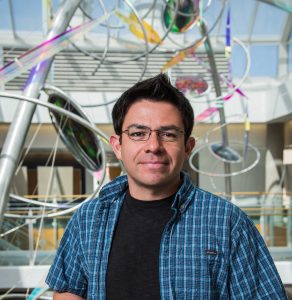
Ph.D.
Professor
Division of Plant Science and Technology
Graduate Studies Director
Division of Plant Science and Technology
Research at a glance
Research Summary
The DMC Lab's main goal is to understand how plants take up, accumulate and transport trace metals between roots and leaves (plant nutrition) and from leaves to seeds (for human nutrition).
The main goal of the lab is to understand how plants take up, accumulate and transport trace metals between roots and leaves and from leaves to seeds. Plants and seeds are the main dietary source of essential nutrient metals such as zinc (Zn), iron (Fe), manganese (Mn) and copper (Cu). However, plant-based products are also the main entry point for toxic elements like cadmium (Cd), arsenic (As), mercury (Hg) and lead (Pb). Some of the detrimental effects of heavy metals on human health have been linked to diabetes, hypertension, myocardial infarction, diminished lung function and certain types of cancer.
Understanding the molecular mechanisms by which plants mobilize and accumulate heavy metals will have two major impacts on human health. First, it will enhance the nutritional value and safety of plant products by ensuring the accumulation of essential metals while avoiding the retention of toxic metals. Second, the identification of genes and molecular mechanisms that allow plants to tolerate and accumulate toxic metals will facilitate the engineering of plants for bioremediation purposes.
The David Mendoza lab has three main areas of interest:
- Uptake and allocation of nutrients.
- Plant transcriptional responses to environmental stresses.
- Metabolic engineering.
Educational background
- Post-doctoral, Plant Molecular Biology, UC San Diego
- Ph.D., Biochemistry, UNAM, Mexico City
- B.S., Biology, UNAM, Mexico City